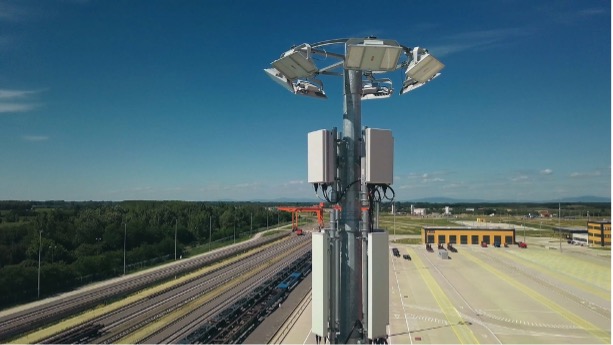WASHINGTON – National security experts sounded the alarm on Tuesday about the risks posed by Chinese tech company Huawei, and its growing presence in Mexico.
Huawei, one of the world’s largest telecommunications companies and 5G network providers, is viewed by some U.S. policymakers as an arm of the Chinese Communist Party. With a growing Mexican foothold, experts worry the company may end up functioning as a “backdoor” for Chinese cyber-spies inside of one of America’s closest neighbors.
“We are looking at the most valuable commodity today– that is data, digital data,” said Dr. Luisa Parraguez Kobek, a professor of international security at Mexico’s Tecnológico de Monterrey, during Tuesday’s panel led by the Center for Strategic and International Studies.
By accessing U.S. data, an adversary could pinpoint secret military targets or inflame ideological divisions to stoke violence among U.S. populations or highlight according to the U.S. Modern War Institute.
The Biden administration banned sales of new Huawei equipment within the U.S. last year over fears it would be used to spy on Americans.
Before that, Huawei was placed on a Commerce Department trade restriction list in 2019, under President Trump, and has since restricted U.S. technology suppliers from selling American tech to Huawei.
The U.S. blacklisted Huawei for trade related to smartphone components, but the company has made up for lost revenue, and access, by successfully moving into data management on the cloud.
It’s that shift to cloud computing, data management, and potential data collection in Mexico, that has experts on edge.
In 2018, accusations emerged that Huawei had been spying on the Ethiopian-based African Union headquarters for years, delivering extensive government data to Chinese networks each night.
Some experts fear that Chinese tech expansion throughout Africa and Latin America is part of the country’s Digital Silk Road.
The Digital Silk Road itself is part of the country’s enormous Belt and Road initiative, an endeavor to boost global infrastructure and development with projects like railway and road development.
Skeptics say the Belt and Road Initiative may help poorer countries boost their economies, but only at the expense of giving China geopolitical leverage and access to massive quantities of national data, often by constructing many “G-base stations,” which take the place of cell towers for 5G networks.
“China has aggressively expanded its 5G infrastructure in Latin America,” Kobek said. “It’s constructing 600,000 G-base stations and has done so in the last three months to reach a goal of 3 million by the end of this year.”
“In contrast, the United States has constructed 100,000 of these stations between 2019 and now,” she continued. “It’s penetrating Latin America, and Huawei has certainly penetrated Mexico.”
Huawei has been on U.S. security officials’ radars for years, though that hasn’t stopped the company from trying to make inroads into America anyway. Last year, a CNN report highlighted an FBI investigation that determined Huawei equipment was capable of intercepting U.S. military communications, including those that oversee nuclear arsenals.
While Huawei cyber risks can’t be completely eliminated in Mexico, they can be managed, according to Juan Cruz, a panelist and Center for Strategic and International Studies senior adviser and Latin America expert.
But effective risk management can only come from open engagement.
“The solution for tackling Huawei near the U.S. is for American policymakers to incentivize Mexican partnerships with other telecom providers,” said Cruz, referring to other international companies like Alcatel of France, Nokia of Finland, and Siemens of Germany.
“Every good businessman will tell you that it’s good to diversify,” he said. “And you don’t want to put all your eggs in one basket and make yourself a hostage of Huawei.”

